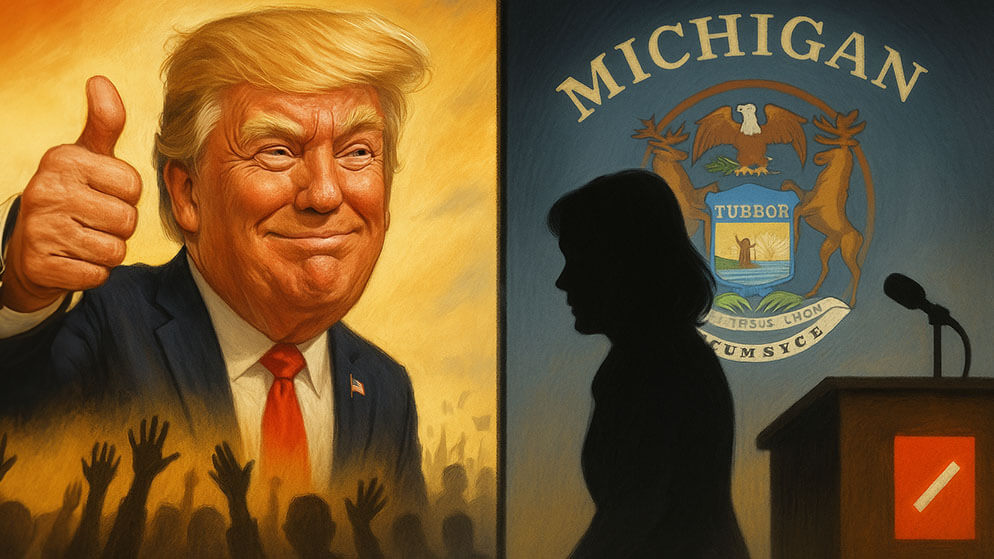In an unexpected turn of events, President Donald Trump acknowledged Democratic Governor Gretchen Whitmer during a speech to Michigan National Guardsmen on Tuesday. The moment, which many described as awkward, occurred when Trump defied conventional political etiquette by inviting Governor Whitmer to join him on stage.
Addressing the audience, President Trump expressed his appreciation for the governor, stating, "I want to thank Michigan Governor Gretchen Whitmer. You know, I'm not supposed to do that. She's a Democrat. They say, don't do that, don't have her here. I said, 'no, she's going to be here… she's done a very good job.'" This commendation caught Governor Whitmer off guard, as she was not prepared to address the crowd but managed to deliver a brief speech thanking the servicemen and women.
What followed was Governor Whitmer's hesitant response as she took the stage, remarking, "Well, I hadn't planned to speak…" before composing herself and expressing her gratitude towards the troops. This incident marks the second public interaction between the two political figures since President Trump's inauguration in January.
Their previous encounter during a controversial Oval Office meeting earlier this month had already stirred up significant discussion, particularly within Democratic circles. Governor Whitmer faced criticism from her party after appearing alongside President Trump, who praised her governance despite their opposing party affiliations.
The Michigan Democrat's visit to Washington revolved around critical state issues, such as recovery from a recent ice storm, federal investments for a local Air National Guard Base, and environmental concerns impacting the Great Lakes. Coinciding with her visit, President Trump announced a 90-day suspension on international tariffs, following an agreement to negotiate new trade deals with 75 countries.
Governor Whitmer was accompanied by Michigan Republican House Speaker Matt Hall for the scheduled White House visit, which unexpectedly turned into a press conference. Her office later clarified that the governor was unaware of the press conference's subject matter and emphasized that her presence did not equate to an endorsement of any statements made.
The political dynamics of this bipartisan appearance have sparked considerable reaction on social media. Users have commented on Governor Whitmer's apparent reluctance, with one Twitter user suggesting that President Trump had orchestrated the situation deliberately. Images from the Oval Office meeting circulated online, capturing Whitmer's discomfort as she stood on the sidelines.
This recent development underscores the nuanced relationship between President Trump and Governor Whitmer. Despite their political differences, Trump's public praise and the governor's cooperation on certain issues have created a complex interplay of bipartisan interaction and political maneuvering.





